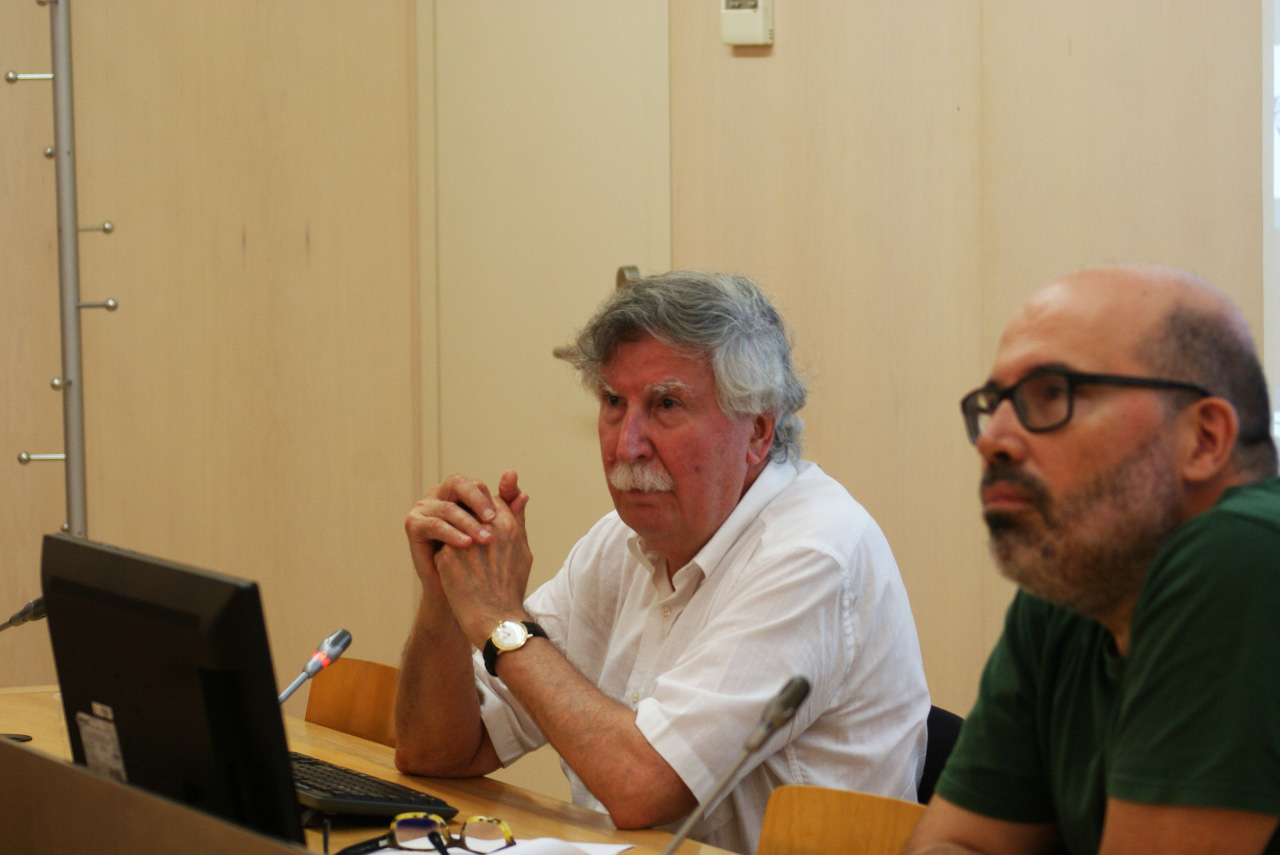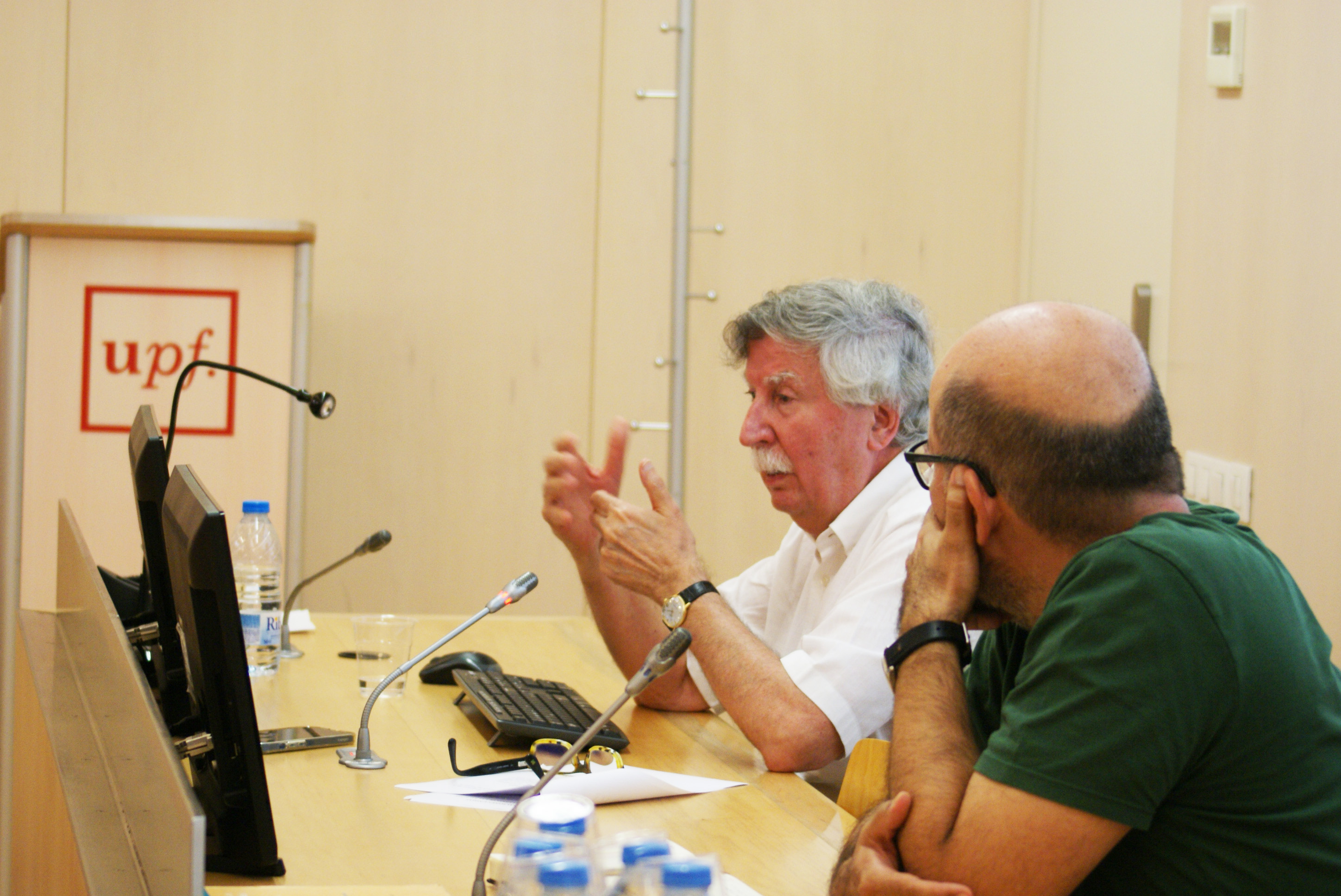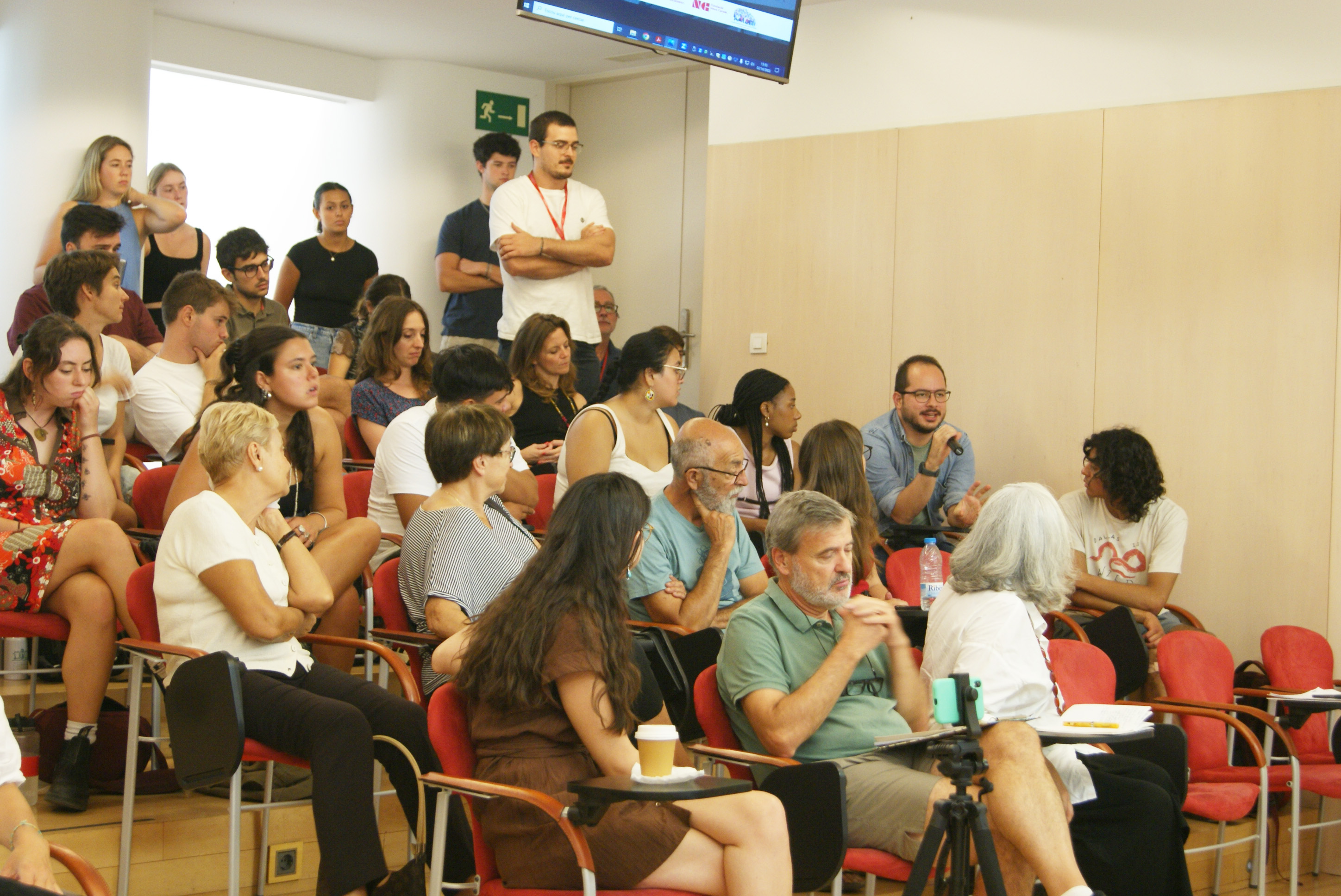“What happened in Chile had an impact on the rest of Latin America and the developing world.” Report of the thirteenth Policy Dialogue session
“What happened in Chile had an impact on the rest of Latin America and the developing world.” Report of the thirteenth Policy Dialogue session
On October 2, the JHU-UPF Public Policy Center delivered a new session of the Policy Dialogues series, entitled: "USA, Western Europe, and the coup d'état in Chile, 50 years later." Joan Garcés, a jurist and political scientist

This year, Chile commemorates 50 years since Augusto Pinochet's coup d'état. It is a country where the wounds of the dictatorship are still open, and society cannot find consensus either regarding the country's past or its future. On September 11, 1973, el Palacio de La Moneda (seat of the presidency) was bombed with a clear objective: to put an end to the democratic government of the socialist Salvador Allende. A political crisis had been looming over the country, with an opposition that refused to accept the political project of a socialist government and an international community alarmed by the ideological shift of the government, especially the United States – then in the midst of the Cold War – which saw Chile as a threat to both the region and the global balance of power. Although
On the morning of September 11, President Allende
Fifty years later, and despite the fact that 33 years have passed since the return of democracy to Chile, the political and social situation of the country is under tension. In 2019, Chile experienced a social outburst triggered by an economic crisis and social discontent. To alleviate the crisis, the government proposed a constituent assembly to tackle an old ghost: the controversial 1980 constitution created during the dictatorship.
The 50th anniversary of the military coup d'état against democracy is an opportunity to understand the social, political, and economic dynamics that triggered this event within a more global framework of world geopolitics, as well as the dynamics that influenced the processes of transition and return to democracy.
In order to analyze and understand these processes, the JHU-UPF Public Policy Center, together with the Neus Català Foundation, delivered the thirteenth Policy Dialogues session entitled "USA, Western Europe and the coup d'état in Chile, 50 years later." The speaker was Joan Garcés, a jurist and political scientist who was advisor to the former President Allende, was present at La Moneda on the day of the seizure, and was actively involved in the defense of human rights and the search for justice in Chile. The session was moderated by Jordi Mir, Director of the Center for the Study of Social Movements (CEMS) of the Universitat Pompeu Fabra.
Joan Garcés began the session by pointing out that although many of the attendees were not even born when the dictatorship began, it is important to remember these events that serve to analyze current global political situations.
Garcés set the conversation in the Chile of the 1970s and explained how
A few days after the elections in Chile, Garcés explained, the UN General Assembly approved the Declaration on Principles of International Law concerning Friendly Relations and Cooperation among States in accordance with the Charter of the United Nations. This declaration recognizes the right of peoples to self-determination, by virtue of their political status and their economic, social, and cultural development, and asserts that no state may intervene in another
One of the main concerns of the then-President of the United States, Richard Nixon, was the threat that Chile represented for the region: an ideological change that proposed economic and social transformatio
In the second part of his presentation, Garcés explained the effects of the rise and fall of Allende’s government specifically in Western Europe. "You cannot imagine, today, what the repercussion was in the political leadership of all of Western Europe, particularly Italy, and also in France, of the tragic and terrible way in which the Chilean democratic process ended," he commented. Allende’s influence was particularly notable in the Italian communist party, which was the strongest communist party in Western Europe at the time, and a major concern of the U.S. According to Garcés, some Italian politicians denounced the strong pressures from the United States to prevent the development of their leftwing political project.
In addition to Italy, the Chilean influence also reached France. According to Garcés, the impact of the Chilean process was such that in 1971, the leader of the French Socialist Party, François Mitterrand, visited Santiago to talk with Allende and study how the Chilean process was developing. After that visit, the French left-wing parties – the Socialist Party, the Communist Party and the Radical Party – signed a common program to run for the presidential elections, which Garcés explained included the following: "reform of the Army, nuclear disarmament in France, dissolution of the Warsaw Pact and NATO, support for the European Economic Community, rupture with South Africa, the apartheid dictatorship, and with Franco's Spain, recognition of the communist states of North Korea and Vietnam, possibility of self-determination for overseas territories (i.e., the French colonial empire), and the right to self-determination and support for independence movements in all foreign colonies."
Finally, Garcés explained the relationship between Franco's Spain and the Allende government. Franco, despite governing with U.S. support, did not support U.S. intervention in the two countries that were outside of its sphere of influence: Cuba and Chile.
This, Garcés pointed out, is very important. "Why? Because it would influence the subsequent debate on NATO. That is to say, within Spain in the 1970s, both in the Francoist right wing and the anti-Francoist opposition, there was a majority opinion that foreign policy towards Latin America should not be subordinate to the United States. In practice, as I have already said, not only did it not join the [U.S. economic] blockade [of Chile], but Franco's government, in '72, offered a loan to the Chilean government when the United States had closed its financing channels", Garcés stated. The issue of U.S. interventionism generated a long debate in Spain on whether or not the country should join NATO and how this process should be carried out.
For Garcés, these strategic elements surrounding Allende's electoral success, as well as the successful destabilization of his government and military coup d'état, have had ramifications in very important political decisions taken in France, Spain, Portugal, and Italy.
At the end of the session, the audience asked Garcés questions about the current U.S. foreign policy, current Chilean politics, social unrest, and the future of Chile, especially regarding the constituent process, among others.


Follow us on Twitter to hear about our upcoming Policy Dialogues seminars @pubpolcenter and our Instagram account @publicpolicycenter
